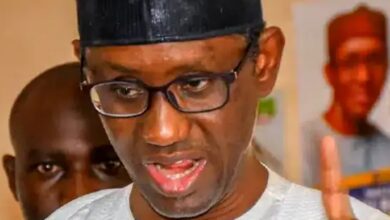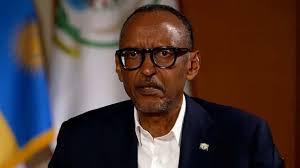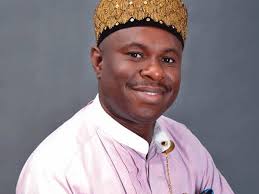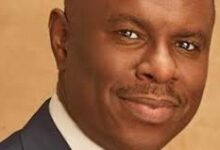Why I can’t practise medicine in Nigeria again – Popular Canada-based physician, Dr Zo
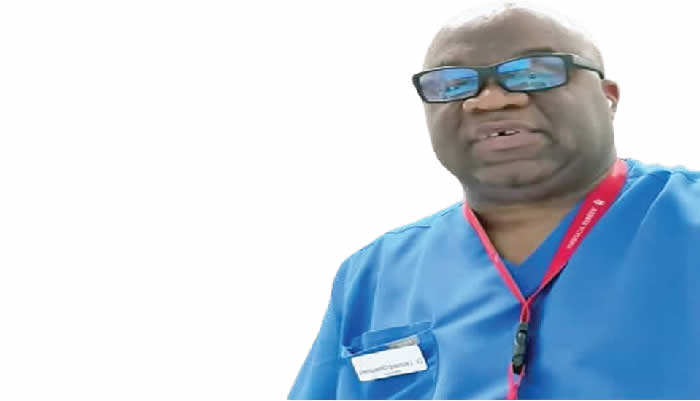
In this interview with BIODUN BUSARI, a Canadian-based Nigerian doctor, Arinze Onwumelu, aka Dr Zo, shares his experience as a medical practitioner abroad and the expectations for his colleagues at home.
What has your experience been like as a medical doctor in Canada?
I came to Canada as a finished product. I had put about 17 years into practice including the Surgical Residency in Ireland and the Family Medicine Residency in the UK. I left medical school almost 27 years ago and migrated to Ireland three years later.
To be honest, I have been fortunate since coming to Canada. I was lucky to have inherited a clinic and a pool of patients from my mentor, Dr Rick Zabrodski. The contract was for $1. I practically did not pay him a dime. The clinic is big now because we’ve expanded. And we are going to have probably about 10 doctors by the middle of next year.
The medical profession is quite different in Canada because the government and the people support you. People are extremely nice here compared to the UK and Europe. The health sector supports the medical doctors very well. When we were in the UK, it was as if the General Medical Council was against Nigerian doctors there.
What is your specialisation and how have you managed it?
My area of specialty is Family Medicine but I also worked in several Emergency Medicine Departments all over the world for 26 years. I had to give up the emergency room three years ago when I turned 50. I felt I was getting too old for the ER adrenaline rush.
I did my house job at the University of Nigeria Teaching Hospital and my youth service in Port Harcourt before moving to the Federal Medical Centre, Umuoji, where I worked for about one year before migrating to the Republic of Ireland. I spent about nine to 10 years in Ireland where I did a Higher Surgical Residency before moving to the UK to start a Family Medicine residency all over again.
In those days, it was not easy for black immigrants, especially in the surgical field. Family practice is what I do now. I look after hundreds of seniors and patients. I love it. It has really given me a renewed sense of purpose. The Dr Zo you see today is essentially a product of my time and cordial relationship with elderly people. They take me like their son and I have adopted them as my parents too. They are the best and nicest Caucasians to deal with. Believe me.
When did you relocate to Canada?
I came to Canada in November of 2015 from Scotland. The UK had this Brexit policy back then so we had Irish passports and we suddenly were required to get work visas to work in the UK. There was a lot of anti-immigrant sentiment in the UK at the time. At the same time, Canada was seeking doctors from the UK to work in Canada. So, it was a combination of push and pull factors that made us migrate to Canada. I signed my first contract to go to Canada without having even visited Canada. Believe me, it has been the best decision of my life. People were nice, and very welcoming from the airport to the immigration. They asked what I did, and I said ‘doctor’ and they asked what of my wife, and I answered ‘lawyer’. They were welcoming and saying come and stay in our country. Meanwhile, with your British passport or EU passport in the UK, the immigration officers would be looking at you like you stole your passport. The love in Canada is real.
What are your remarkable achievements as a doctor in Canada?
My achievements in the last couple of years are that I have mentored a lot of young doctors. In the next couple of years, I would say that I’ve trained over 70 doctors and they succeeded. That’s the best thing that has happened to me. And this gives me joy.
The second achievement is that, in the last seven years, I was introduced to elderly care because I took over a 35-year clinic, so I started looking after very old people and managing a lot of old people. I gave myself a target to push these old people to 100 years as far as I can. I’m doing everything possible to push them to 100 years. Sometimes, I succeed and sometimes, I narrowly miss it at 90. This has given me a sense of purpose lately. And the best and nicest Caucasians that you would ever do anything with are the elderly people.
I did my weight loss surgery essentially based on the advice I got from a 92-year-old woman. She was not up to five feet but she looked at me and told me ‘Dr Leonard, you have to lose weight. We want to see you around for a long time but with the way you’re going, it’s not gonna happen.’
Two months after the encounter with this lady, I had a Gastric Sleeve and right now, I have lost over 35kg within the last year alone. I look fit and I feel good. I always thank her for her advice anytime I visit her lodge.
You advised Nigerian ladies on Brazilian Butt Lift recently on social media. What prompted you to do that?
As I said, I did a surgical residency and family practice residency. Most of these people go outside of Canada to Turkey, Mexico, and Nigeria because they are cheap. You can get BBL for $2,000 in Nigeria. But, I will say a good number of them run into complications when they come back. They come back to me because they know I have surgical medicine experience and I treat a lot of them here.
I do say that if you look at the ladies with BBL on the outside, it looks good but it doesn’t feel natural. There are possible complications and most of them are infections. I know people from Canada who did BBL in Nigeria and they ran into serious troubles. Some nearly died from it.
I know people who developed infections and sepsis and it was hard for them to travel. Some others developed blood clots as a result. These are serious complications and I have managed them here in Canada.
Is there a difference in practising medicine in Nigeria and Canada?
It’s like night and day! When I left Nigeria 23 years ago, I made myself a promise to return to Nigeria after about 10 years and settle down in Nigeria. See what happens when you practice medicine abroad; I have worked here as a doctor for 23 years and we are trained to be transparent to our patients. There is no reason to lie. You tell them the diagnosis, everything is clear to them.
Unlike Nigeria, they won’t tell you the diagnosis, they won’t tell you the prognosis. It’s different. After 10 years, I built one house abroad and one in Nigeria, I was ready to go. But I realised I couldn’t practise in Nigeria anymore. The reason is that I will be considered ‘mugu’ or ‘maga’. I will tell you everything as it is abroad. If you do that in Nigeria, people won’t come back again.
That’s the mindset and the difference. In Canada, everything is evidence-based but in Nigeria, there are a lot of financial constraints as doctors are trying to manage occupations because they don’t have the money. Having said that, I trained at the University of Nigeria and I have to appreciate all my colleagues working there. It is not easy to work in Nigeria. I praise and encourage them, but at least, every doctor deserves to work a bit abroad. But there is a huge difference between the medical system in Nigeria and Canada.
What improvements would you like to see in the Nigerian health system?
Talking about government, the best health minister the Nigerian health system had was Olikoye Ransome-Kuti. He was my idol. He did a lot of things like primary healthcare, and vaccination. I think former president Buhari did well too but Nigeria as it is, if you ask me, I would recommend a private-government partnership to permanently sort out Nigeria’s health problems. It’s about time we partnered with a lot of people abroad. That’s the only thing I can say that Nigeria needs as soon as possible.
We have thousands of Nigerian specialists abroad who want to come home, including me. I feel like I owe Nigeria because if I look at how I trained, I want to give back. My last school fee was N59 in UNN in 1997. But when you think of giving back, there have to be facilities on the ground. People are doing it gradually, coming to Lagos to set up private hospitals. I will just say that the government should team up with the private sector to build the health system. If it can do that, doctors will start coming home to practise and before you know it, the medical system will be like that of India. I can guarantee you that because we are the ones with the brains. Unfortunately, our politicians don’t think in that direction and it is what it is. But I strongly believe that one day, things will get better in Nigeria.
What other things do you do aside from practising medicine?
If you go to my social media page, you will realise that I do travel, family, and service to humanity. I mentor a lot of people. Even these days because of social media, I’ve turned to a marriage counsellor. I mentor thousands of younger people in marriage because I love the marriage institution. I buy medical equipment and send it back home. I live like there is no tomorrow so I make everything matter. Most weekends, I travel with my wife to explore the world because my children are in universities. I love to spend time with my family. Most of the things I do now is that I advise young people because I also interact with old people.
Do Nigerians in Canada take medical checkups seriously?
To be honest with you, Nigerians are Nigerians. Even Nigerians here in Canada are still Nigerians. They don’t bother about healthcare that much but that’s what we do. We go around and preach to people. I talk to a lot of Nigerians in organisations to take their health seriously. The reason is that when you are in Canada, the health services have been paid for, so it’s free. We tell them why they are cheating themselves. Nigerians behave as if they only come to see you when they run into problems. Even a doctor had a COVID and he didn’t know he was diabetic. Nigerians are like that all over the world, but it takes a bit of education and awareness for us to get to what we desire.
What is your take on Japa syndrome?
With the way things are in the country, you cannot advise anyone with an opportunity to travel not to do it. Personally, I believe that every doctor in Nigeria should practise for a while abroad. There are things that they only read in textbooks and they have to experience it here because they are not available in Nigeria. It improves quality. For medical practitioners, and all professionals in other sectors, I don’t have a problem with that. For instance, I made plans to go back home and I keep changing my mind because things are getting worse in the country. So, are you going to blame the people looking for greener pastures to better their lives or the politicians who are mismanaging the resources? It is a no-brainer that anyone would support Japa syndrome because you want the people on the ground to survive. I look at my country now and I weep.
What challenges do Nigerian doctors face in Canada?
You must learn how things are done in the West. In my opinion, it’s a bit more difficult to get yourself into the system here in Canada compared to the UK. But, it’s more forgiven when you work here as a Nigerian doctor than in the UK. Medicine is a total package here. Even if you know the whole thing, there are still a lot of semantics. Remember that English is not our first language. You have to learn how to talk to patients. You must know things are done in the West.
How will you advise Nigerians who want to relocate to Canada?
I’m saying this as someone who has been in the West for 23 years. I’ve been to over 70 cities in the world. I have a lot of experience when it comes to travel. Calgary in Canada remains the best place for me. I’ve never seen people as nice as these people. So, I will say that if you are travelling to Canada, I do say it’s a land of milk and honey. It’s the best gift you can give to your kids. You know sometimes when you will come over, there will be a downgrade and saying I was this and that in Nigeria. Don’t look at it in that perspective. Look at it from the perspective of the future of your kids. The trajectory will change because you have given yourself a quality of life.

